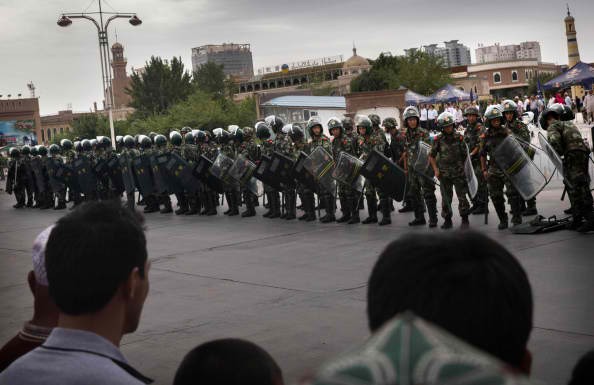In China’s far region of Xinjiang, three people with knives killed five people and injured another five.
The thugs attacked on Tuesday night and stabbed the victims for unknown reasons, with no further details released.
The local government of the Hotan prefecture released a statement that read: "At present, social order is normal at the site, society is stable, and investigation work is under way."
There is a suspicion that the attack was aroused by the existing conflict between the Han Chinese and Uyghur rebels. The conflict has brought many incidences of massive deaths recently.
Xinjiang is the largest region in China and borders central Asia, Pakistan, Afghanistan and India. Violence is still predominant in the region amid the implementation of the anti-terrorism law.
Muslims are blaming the Chinese for control over the region and are believed to continuously retaliate with acts of violence.
Last year, an attack on a coal mine in the region caused 28 deaths. The miners were flushed out with flamethrowers. In December, armed men drove into a government building and killed five people.
The Chinese representative of the foreign ministry, Hua Chunying, said, "We cannot understand why terrorism, when taking place in other countries, is regarded as terrorism but ethnic and religious issues when taking place in China."
She added, "And we cannot understand why other countries' counter-terrorism acts are justified, but China's counter-terrorism actions are so-called repression of ethnic groups."
According to Abhishek Pratap Singh of the Uyghur Human Rights Project, there is a flaw in the manner that the Chinese government is addressing the problem of terrorism.
He wrote, "The problem lies not just with its tough provisions but the manner of its operation and its implications in terms of tightening political control."
"As China's new anti-terrorism law falls short of striking a 'fair deal' between liberty and security, it is important that the nature of its operation reflects upon countering 'legitimate' terrorist threats without compromising on 'citizens' and organizations' lawful rights and interests in the process', which the law itself provides for," he added.



























